HR 347, NDAA, SOPA — More "creep" toward a U.S. "police state"?
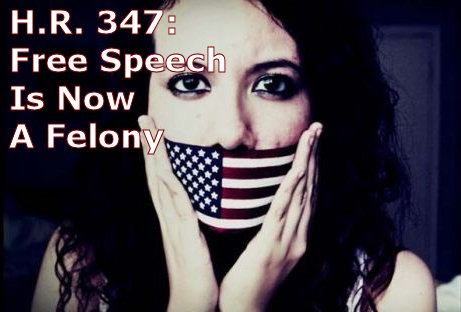
A police state? In the USA?
It's a term that to some may seem rather overused ... but characterizations like "police state" and "authoritarian" are becoming ever more commonplace in describing a modern American society undergoing a bombardment of relentlessly more severe federal laws suppressing civil freedoms, and steadily less restrained and more aggressive behavior by law enforcement authorities.
And all of this is burgeoning within an increasingly regimented society that seems to be morphing into a virtually constant state of war. The phrases "George Orwell" and "1984" also come to mind...
This past January, renowned liberal civil rights and constitutional law professor Jonathan Turley of the George Washington University Law School expressed his growing concerns over the deterioration of democratic freedoms in a commentary posted on the Internet, as well as a Washington Post column. Titled ominously "The US Is No Longer the Land of the Free", Turley's article warned that "Whether we are viewed as a free country with authoritarian inclinations or an authoritarian nation with free aspirations ..., we are clearly not what we once were."
And, reviewing President Barack Obama's recent signing of the National Defense Authorization Act (NDAA), plus other potentially repressive legislation, Turley wrote that
An authoritarian nation is defined not just by the use of authoritarian powers, but by the ability to use them. If a president can take away your freedom or your life on his own authority, all rights become little more than a discretionary grant subject to executive will.
Fueling the latest spurt of outrage over America's creeping drift toward authoritarianism is HR 347, a bill emerging from the Republican-dominated U.S. House of Representatives, passing on Feb 27th, in a remarkable display of bipartisan agreement, by a whopping 388-3 vote. It's also managed, so far, to evade the radar of widespread public scrutiny and the attention of the mass media.
Euphemistically called the Federal Restricted Buildings and Grounds Improvement Act, the new measure previously passed the U.S. Senate as S. 1794 with unanimous consent, and is now poised for signing by President Obama. But HR 347 has also evoked alarmed and angry criticism from across the political spectrum, particularly from critics on the left, who have dubbed the measure the "Anti-Occupy Law" because, they say, it hands the federal government new and ominously draconian powers to crush protest.
As this author has summarized in an article for Examiner.com, HR 347...
...authorizes the criminal prosecution of anyone engaging in political protest, virtually anywhere in the country, under conditions where protest has been customary and even expected — against major political figures and foreign dignitaries, for example.
...
It tremendously broadens existing federal law to permit government authorities to bring charges against protesters, demonstrators, and other activists at various political events and activities across the USA.
...
Labor protests and strikes could also be targeted.
Among the most credible opposing views of this new measure, Jonathan Turley's personal website on March 3rd posted an analysis of the legislation by guest blogger Gene Howington.
Following a detailed scrutiny of the legislation, Howington's conclusion warns that HR 347 not only eliminates the need to prove "intent" of protesters to violate the law that establishes "restricted" government-controlled areas, declared off-limits to protesters, but also moves significantly in a more repressive direction by
...expanding the meaning of the term ‘restricted buildings or grounds’ to mean virtually any place in proximity to or place proper [where] a government function or an “event of national interest” is taking place. This would allow for the arrest of protesters just about anywhere. Outside political rallies, near the hotels of visiting foreign dignitaries, outside sporting or other public events like the Super Bowl . . . you get the idea.
In today's seemingly fractured Congress, bipartisan agreement on virtually anything is almost unprecedented. Thus critics of HR 347 perceive the measure's overwhelming, nearly-unanimous support (and unanimous consent in the Senate), as especially ominous. As the Examiner article cited above notes, this "seems to underscore the intent of both major political parties to tighten restrictions on free speech and the right of protest, and to continue to move the USA toward a more regimented and authoritarian society."
Liberal Democrats and ferociously rightwing Tea Party-backed Republicans blithely collaborated to pass the legislation, sponsored in the House by Florida Republican Rep. Tom Rooney, and in the Senate by liberal Connecticut Democrat Sen. Richard Blumenthal.
Such an astounding example of amiable cooperation may seem unprecedented in the currently rancorous Capitol battleground atmosphere, but, over at least the past couple of decades, both parties have managed to cooperate on what would seem to be a mutually beneficial endeavor: crushing civil liberties, and enclosing freedoms of expression and rights of protest into a tighter and increasingly more restrictive cage.
In addition to what critics portray as a legislative assault on civil liberties, this trend has involved local measures by city governments, often Democrat-controlled, and law enforcement, particularly cracking down against leftist protest demonstrations. Over approximately the past twenty years, police forces have increasingly acted to corral demonstrators behind "protest pens" — often chain-link fencing and occasional razor wire. Thus, demonstrators are effectively isolated, perhaps blocks and sometimes even a mile or more away from what they're trying to protest.
More recently, the campaign to "contain" and marginalize protesters has ominously intensified, with high-tech and appallingly savage weaponry — including pepper spray, and sophisticated taser firepower, and even with microwave beam-guns and eardrum-rupturing noise generators being brought to bear. See, for example: 6 Creepy New Weapons the Police and Military Use To Subdue Unarmed People and The Militarization Of the U.S. Police.
Police troopers, now resembling infantry soldiers, have begun launching SWAT-team-style attacks on protesters — for example, recently deployed to smash Occupy protests and women's rights demonstrations in several cities. See, for example: Oakland Cops Attack Occupy Protesters, Again and Virginia Police Arrest 31 At Women’s Rights Demonstration.
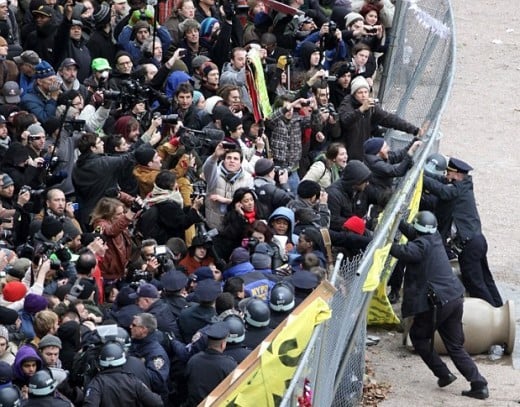
In terms of legislation, some critics argue that HR 347 clearly fits into a pattern, becoming another ominous entry in a growing litany of sinister laws expanding state powers and further shredding democratic rights formerly assumed to be sacrosanct. These laws have been passed with massive bipartisan support from both major parties, and under both Democratic and Republican administrations. Some of the most significant — and dangerous — together with the presidential administrations which signed them, include:
• Antiterrorism and Effective Death Penalty Act of 1996 (Clinton administration) — Severely weakens the essential right of habeas corpus (based for many centuries in English Common Law) that gives prisoners the right to challenge their detention before a court of law.
• Patriot Act, 2001 (Bush administration) — Empowers a wide range of government spying on citizens; bars accused individuals from access to much of the evidence against them; authorizes the indefinite detention of individuals "suspected" of terrorist activities, without charges, and without recourse to an attorney; and legitimizes military tribunals instead of civilian courts to prosecute suspects.
• Maritime Transportation Security Act, 2002 (Bush administration) — Bolsters the power of federal agencies, including the military, to smash strikes portrayed as "terrorist" actions or as “threats" to "national security”. Also gives vast powers to the federal government to further regiment the labor force, by screening maritime and port workers through the so-called Transportation Worker Identification Credential, described by the New York Times (14 May 2006) as “an identity card equivalent of a maximum security prison”. Branded as "security risks" because of minor immigration, drug, and other violations, thousands of non-"terrorist" workers have lost their jobs.
• National Defense Authorization Act (NDAA), 2011 (Obama administration) — Gives the U.S. military legal authority to abduct and imprison indefinitely without charge anyone arbitrarily designated to be a member of Al Qaeda, the Taliban, or “associated forces”. — thus opening a door to permit the military detention of anyone accused of providing medical or legal services, contributing money to, or even interviewing, another individual or group the U.S. government claims is a “terrorist”.
• SOPA (Stop Online Piracy Act), 2012 (Obama administration) — On the pretext of "protecting" the public against Internet "piracy", this proposed law contained provisions designed to suppress much of the free expression on the Internet (SOPA has been blocked so far as a result of ferocious worldwide protest, backed by a number of major Internet-involved corporations and other organizations such as Google and Wikipedia).
Placed in the context of this trend, say critics, the threat of HR 347 can be seen to be especially ominous — as noted in the above-cited Examiner article, possibly "the most repressive measure against civil liberties passed in modern times under nominally peacetime conditions." Of the three votes against it, only one was cast by a Democrat (Rep. Keith Ellison of Minnesota). It should also be noted that, contrary to widespread reports, based on a misinterpretation of an older news item, GOP presidential candidate Ron Paul did not vote against HR 347; instead, he abstained on the final bill.
This record of steadily more repressive legislation, together with appalling giveaways to the very wealthy and plans to slash essential services and beneficial programs for the rest of the American public, has led many activists on the left to realize they, and working people, have no political party to represent them. Particularly within the working class and various "progressive" causes such as the Occupy and women's rights movements, and within minority and immigrant rights groups, calls are starting to be heard for a new party that can challenge such reactionary measures, and take the lead toward revolutionary changes in American society.
More on this topic:
• Austin-area Dem and GOP Congressmen back HR 347 attack on freedom of protest
• H.R. 347: The Empire Strikes Back
• US Congress passes authoritarian anti-protest law
• Obama Ramps Up “War on Terror” at Home
• Militarizing the U.S. Police
• Is Big Brother Watching? You Can Probably Count on It...
Lyndon Henry is a writer, editor, freelance investigative journalist and analyst, and consultant. His blog is:
http://writingperspectives.wordpress.com
Published: 2012/03/09



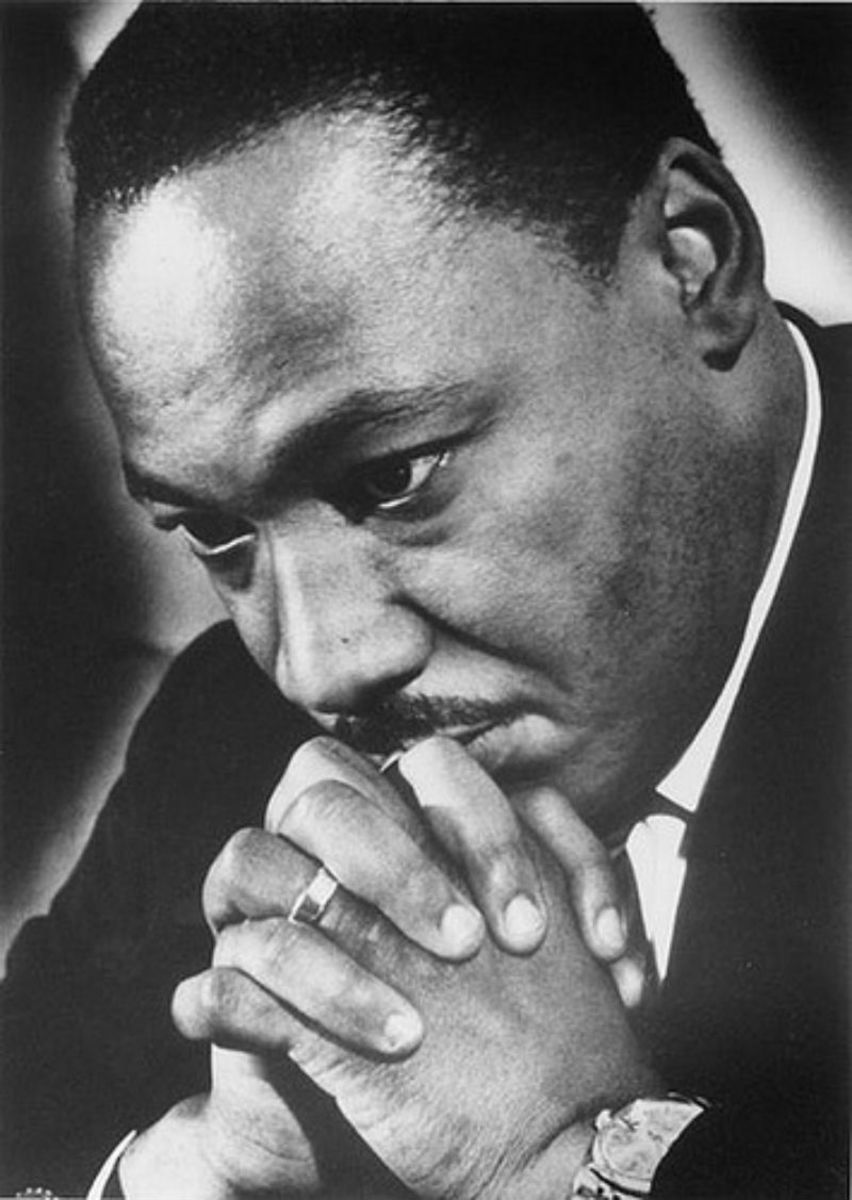

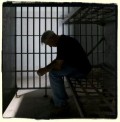
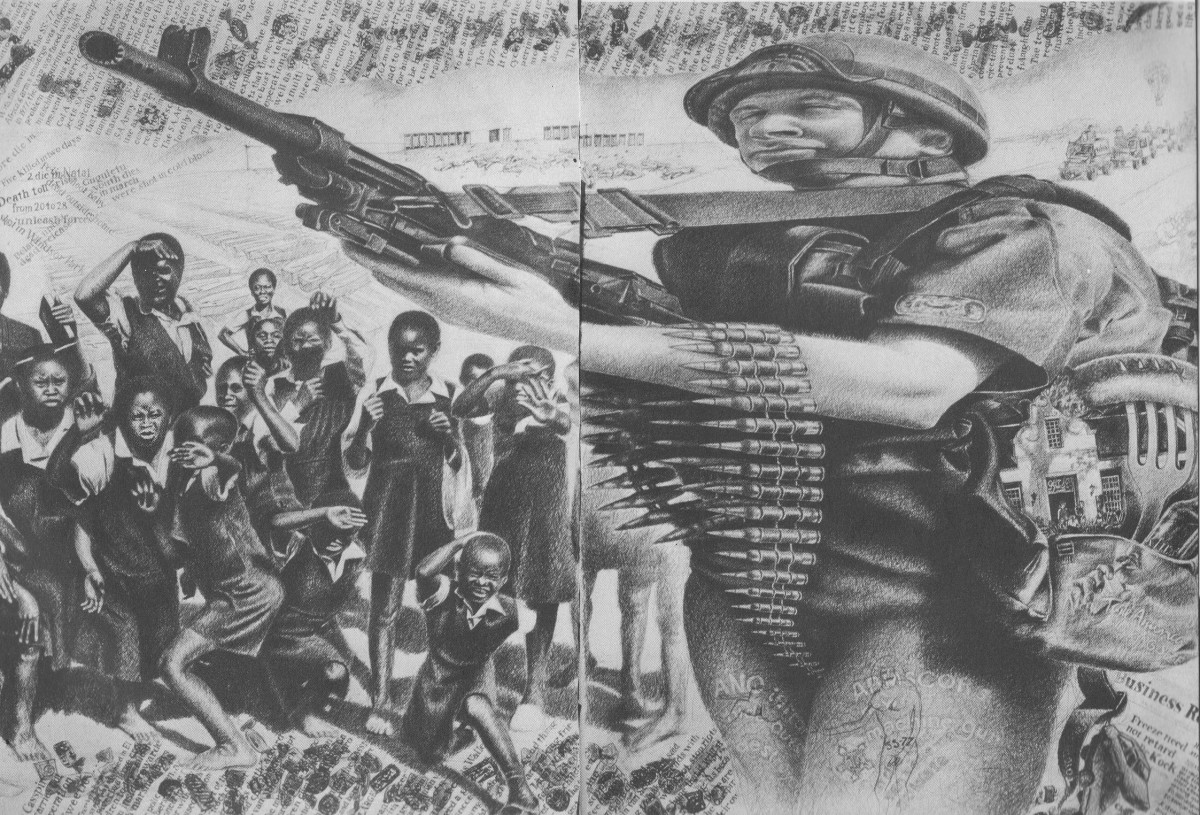



![American Politics: The BIG LIE in Politics, From The Republican Presidential Convention [124] American Politics: The BIG LIE in Politics, From The Republican Presidential Convention [124]](https://images.saymedia-content.com/.image/t_share/MTc2NDYyMjI1MzEyNjU1MzIy/the-big-lie-in-politics-from-the-conservative-side.jpg)